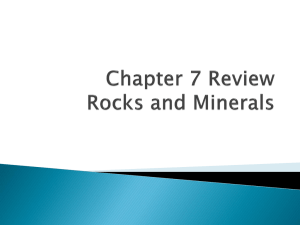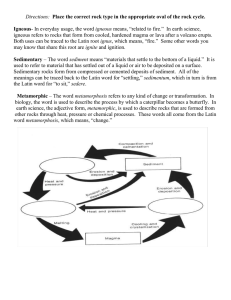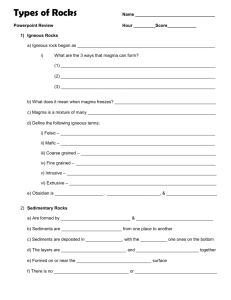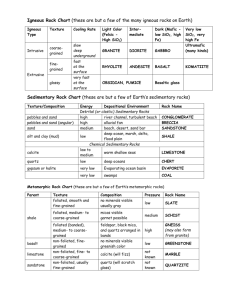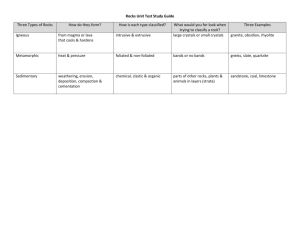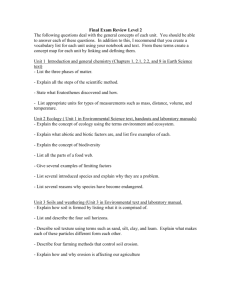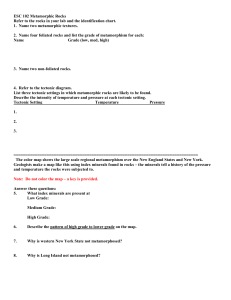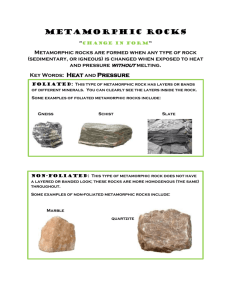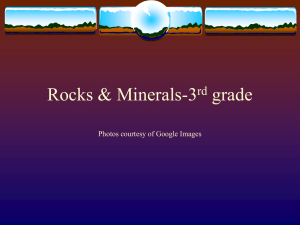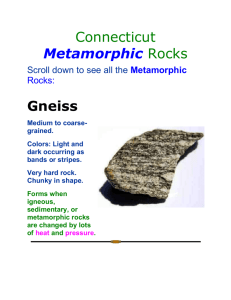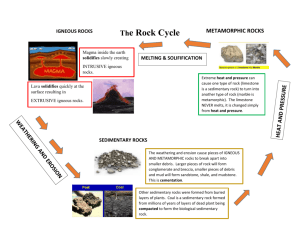Lab 1 Rock Classifications v5b
advertisement
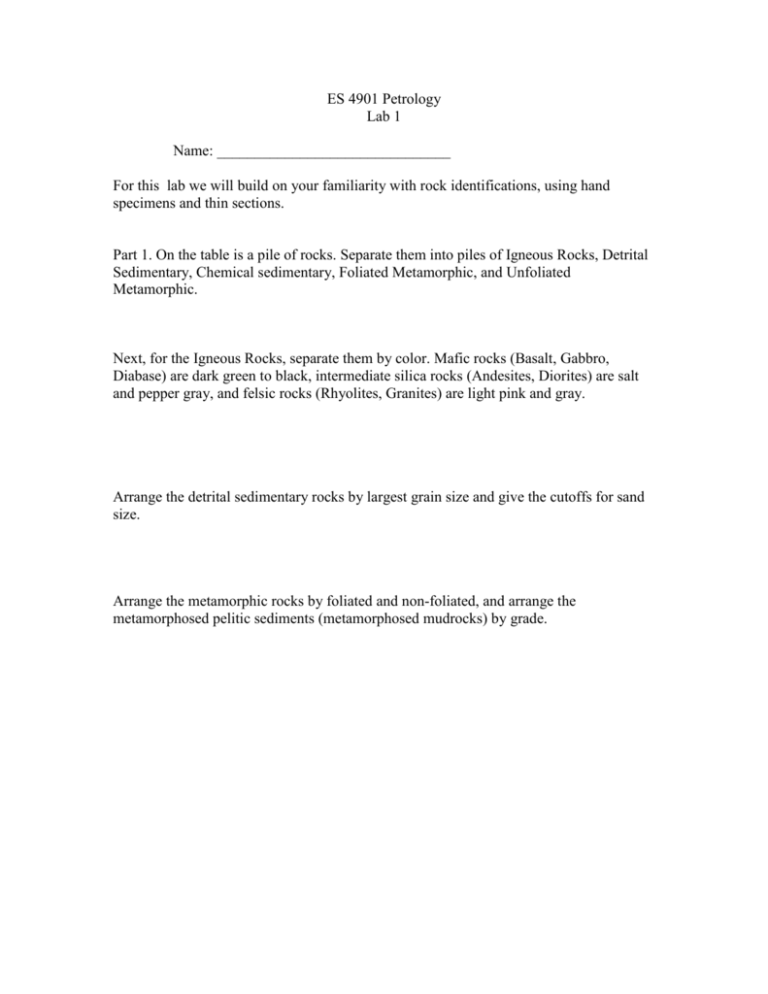
ES 4901 Petrology Lab 1 Name: _______________________________ For this lab we will build on your familiarity with rock identifications, using hand specimens and thin sections. Part 1. On the table is a pile of rocks. Separate them into piles of Igneous Rocks, Detrital Sedimentary, Chemical sedimentary, Foliated Metamorphic, and Unfoliated Metamorphic. Next, for the Igneous Rocks, separate them by color. Mafic rocks (Basalt, Gabbro, Diabase) are dark green to black, intermediate silica rocks (Andesites, Diorites) are salt and pepper gray, and felsic rocks (Rhyolites, Granites) are light pink and gray. Arrange the detrital sedimentary rocks by largest grain size and give the cutoffs for sand size. Arrange the metamorphic rocks by foliated and non-foliated, and arrange the metamorphosed pelitic sediments (metamorphosed mudrocks) by grade. Part 2. For lab homework, read all three of the Jane Selverstone PowerPoints “Optical Mineralogy in a nutshell”. They are in your lectures folder. Using a polarizing microscope, we will examine some thin sections. Find and identify the common rock-forming minerals (list below), and draw their appearance in quick pencil sketches. Note their identifying characteristics. INCLUDE Plane Polarized light (PPL) and Crossed Polars as appropriate for your identification. On the line below, write the slide name. Draw an arrow to the mineral you identified, and give its name. A Michel-Levy chart is provided. For slides with Quartz, give the thickness of the section . Discuss the characteristics of Plagioclase, Microcline, Quartz, Amphibole, and Biotite. Plagioclase: _________________________________________________________________ Microcline, etc. ______________________________________________________________ Quartz _____________________________________________________________________ Amphiboles (e.g. Hornblende) __________________________________________________ Biotite _____________________________________________________________________ Other (Name: _____________) _________________________________________________ How do the crystals in an igneous rock differ from those in a foliated metamorphic rock? 1 micron = 1×10−6 meter. A standard thin section is 30 Microns thick.
